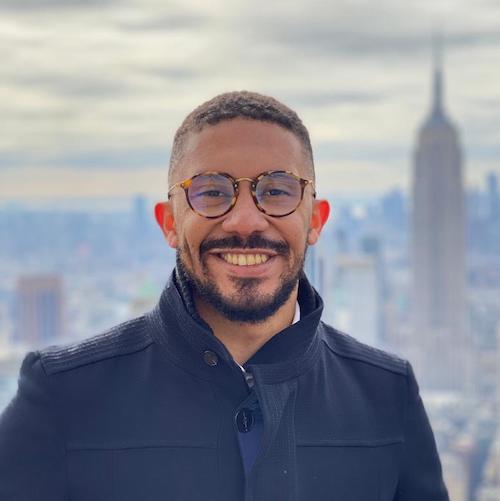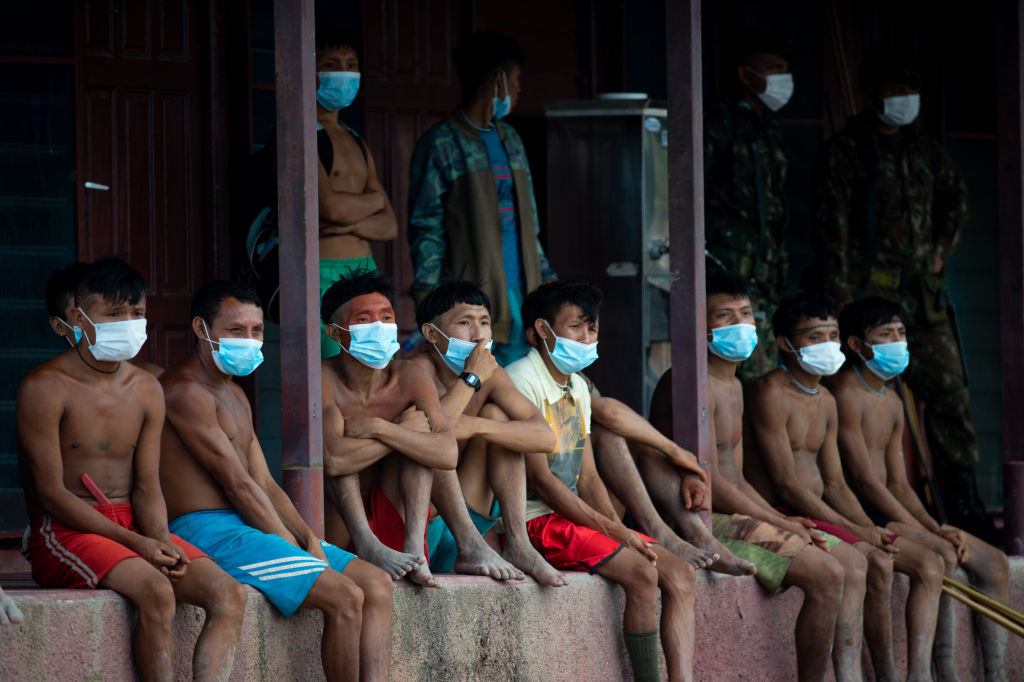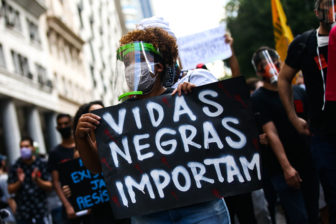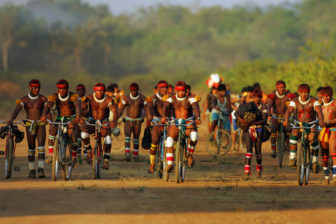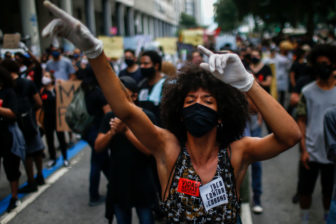SÃO PAULO – “It is not an exaggeration to warn this court that we do have a serious risk of genocide.” Those were the strong words solemnly spoken by the lawyer Luiz Eloy Terena, himself an indigenous person, during an online hearing of the Brazil’s Supreme Court (known as STF for its initials in Portuguese) last week.
The seriousness of the charge meets the gravity of the situation in hand. While legal circles discuss whether it meets the technical definition of genocide from their air-conditioned rooms, indigenous people are dying of COVID-19 at an alarming rate. The disease “could infect up to 40% of the Yanomami communities surrounded by illegal mining,” a report by Brazil’s Socio-Environmental Institute (ISA) said in June. Eloy Terena argued that for isolated groups the virus posed “a risk of the entire group being exterminated.” “In the case of indigenous people,” he continued, “genocide is followed by ethnocide, because in addition to the extermination of life, there is also the extermination of cultures that will never be recovered.”
In response, Brazil’s Supreme Court made a historic ruling on August 5 forcing President Jair Bolsonaro’s government to protect indigenous peoples during the pandemic. Specifically, the STF ordered the government to 1) create so-called sanitary barriers, preventing third parties from entering indigenous lands; 2) establish a “situation room” where government officials and representatives of indigenous peoples might constantly discuss and update such a plan; 3) include in the health system indigenous lands not yet formally recognized as such by the state; and 4) pass urgent measures to contain and isolate invaders of indigenous lands, in particular illegal miners.
While the decision certainly moves in the right direction, it falls well short of providing a clear solution for indigenous people for primarily two reasons. First, the STF decision assumes that the government is willing to negotiate a compromise plan to protect indigenous lands in the so-called situation room. This is very unlikely the case, given what we already know about Bolsonaro’s priorities. In the aftermath of the STF decision, on the very next day, the government suspended enforcement actions against illegal miners in indigenous lands in the northeast state of Pará. Thus, it might be naïve to assume that victims and violators would sit nicely at a negotiating table, sip coffee and discuss frankly and sincerely the status of indigenous ’ rights.
Second, the decision falls short of requiring illegal miners to immediately withdraw from indigenous lands. Only one STF justice (Edson Fachin) would have the Court grant an order of immediate expulsion of non-indigenous invaders, who for some experts are the main cause of COVID-19 contagion in indigenous lands. For the vast majority of the Court, it was enough to only order that the topic be included in the protection plan to be developed by the government sometime in the future, if ever.
For the actual protection of indigenous peoples, such an indirect ruling might not be enough.
The STF decision comes days after the Inter-American Commission of Human Rights also requested the Brazilian state to protect indigenous peoples during the pandemic, in particular Yanomami and Ye’kwana indigenous peoples. On July 17, the Inter-American Commission recommended the “adoption of the necessary measures to protect the rights to health, life and personal integrity of the members of the Yanomami and Ye’kwana indigenous peoples” and ordered the implementation of “preventive measures against the spread of COVID-19, in addition to providing them with adequate medical care.”
It’s painful to say, but we know far too well the potential and the limitations of international remedies. The persistent power of international human rights machinery, a term coined by the scholars Thomas Risse, Stephen C. Ropp, and Kathryn Sikkink in their homonymous 2013 book, relies on the strength of the international system in inserting pressure on national governments in the hope this will compel them to offer, at the very least, tactical concessions – if not a full-hearted compliance with international human rights law.
Their theoretical model is neutral in relation to the level of democracy in the country at stake (Brazil’s democracy is in crisis, by the way). But the problem with this perspective is that it does not seem to take fully into account the nature of autocratic leaders like Bolsonaro who cynically sit at the table of international forums but do not consider them worth respecting. It does not help, moreover, that international law is becoming more nationalistic and multilateral organizations more fragile, as Tom Ginsburg has recently noted in his paper Authoritarian International Law.
Separately, there are five requests at the International Criminal Court to open preliminary investigations of incitement to genocide and crimes against humanity by Bolsonaro. But – let’s be honest – it is very unlikely these requests will ever go forward. Unlike the crimes against humanity, which Bolsonaro is also being accused of, genocide cases require proof of specific intent, and at least 90% of such requests never pass the initial stages of investigation.
So, here is the situation: Brazil has just reached the official death toll of 100,000 people killed due to COVID-19. Indigenous people are one of the most vulnerable groups to the pandemic. Both the STF decision and Inter-American Commission resolution, bearing in mind their different legal effects, move in the right direction, yet fall short in practical terms in providing a clear remedy for the existential threat posed by the pandemic for indigenous peoples in Brazil. This leaves indigenous people with few legal options.
Thankfully, legal battles are not the only path. In addition to pressuring the STF to provide clearer orders to a government that would rather not care at all about indigenous peoples, what we are left with is the centuries-old resilience of indigenous peoples and their political struggles that point to a brighter future, even in the wake of modest, yet well-intentioned, legal remedies.
—
Amparo is a lawyer and professor at Fundação Getúlio Vargas Law School in São Paulo, Brazil

